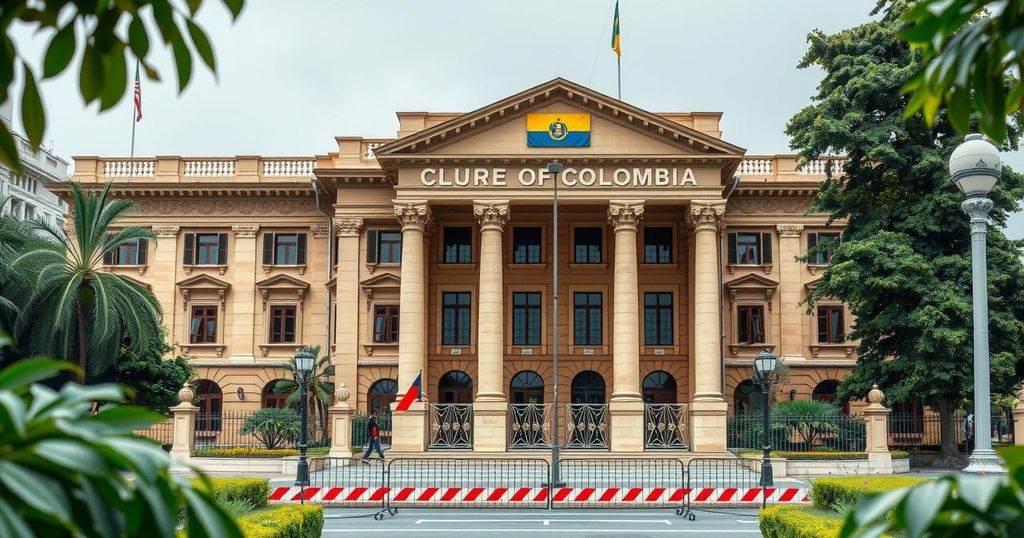Colombia’s Congress has enhanced security measures ahead of labor protests called by President Gustavo Petro. The protests are a response to a Senate commission’s decision to shelve labor reform proposals. Tensions rise as local authorities threaten repercussions against government workers participating in the protests, while labor groups demand respect for workers’ rights and additional reforms.
In anticipation of labor protests, Colombia’s Congress has heightened security measures following President Gustavo Petro’s call to action. The President urged labor unions, farmers’ organizations, and his political backers to demonstrate as Congress engages in a critical vote regarding his significant labor reform proposal, which a Senate commission opted to shelve.
Senate President Efrain Cepeda, a notable critic of President Petro, announced that access to the Capitol building would be restricted to congress members, state officials, and accredited press on the day of the vote. Concurrently, Senator Nadia Blel from the Conservative Party condemned the backlash faced by senators opposing the reform, stating that they have endured attacks, slander, and threats from the National Government.
Tensions have escalated further as local authorities across Colombia’s major cities, including Bogota, have declared that government workers shall not participate in the protests. Mayor Carlos Galan warned that teachers who do not report to work on the protest day may face payment repercussions, a statement which the teachers’ union, FECODE, contested, emphasizing that teachers’ salaries are sourced from the National Government.
In response to potential employer intimidation regarding participation in the protests, Labor Minister Antonio Sanguino affirmed that his department would oversee any undue restrictions placed on workers. He stressed that employers must honor workers’ rights to protest and their dignity, reiterating the Constitutional Court’s stance on these fundamental rights. The protests, mobilized by primary labor unions and indigenous groups, also demand Congressional backing for pending health and pension reforms.
In conclusion, Colombia’s Congress has increased security measures in light of impending labor demonstrations called by President Gustavo Petro. These protests reflect significant tensions between the government and opposition groups regarding proposed labor reforms, with concerns over worker rights and potential repercussions from local authorities further complicating the situation. With diverse support from labor unions and indigenous organizations, the forthcoming protests also aim to address health and pension reform issues.
Original Source: colombiareports.com






